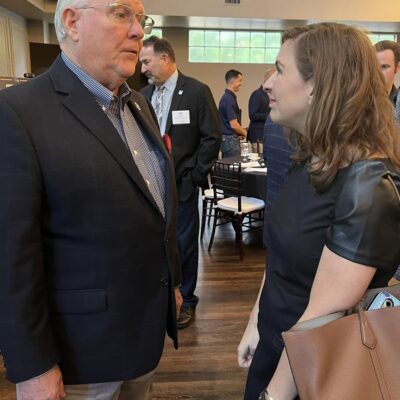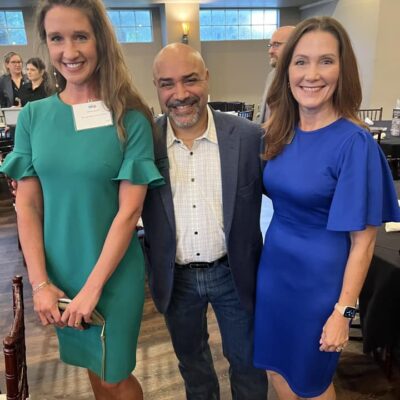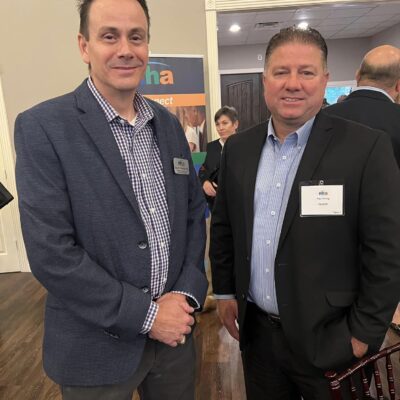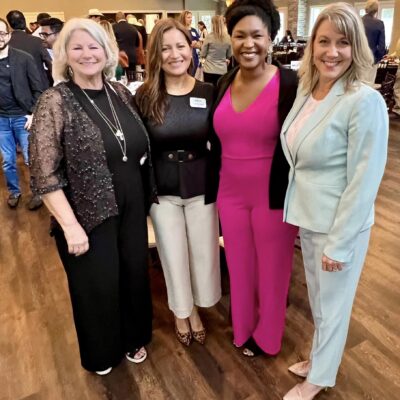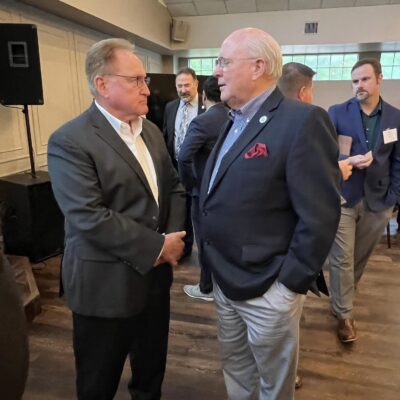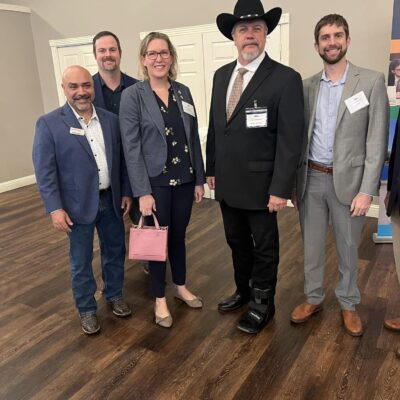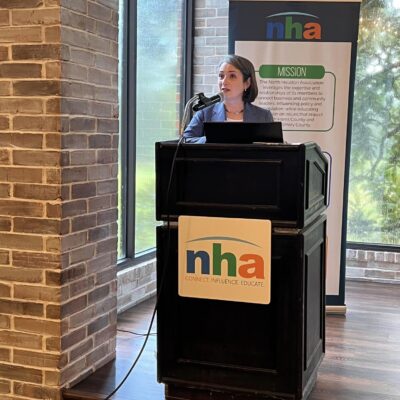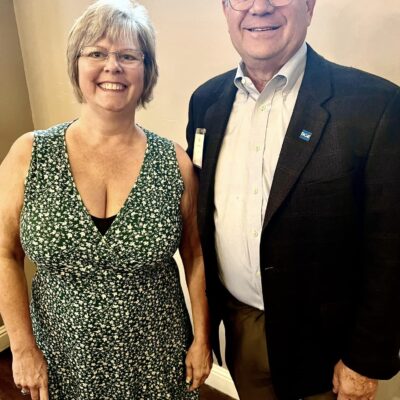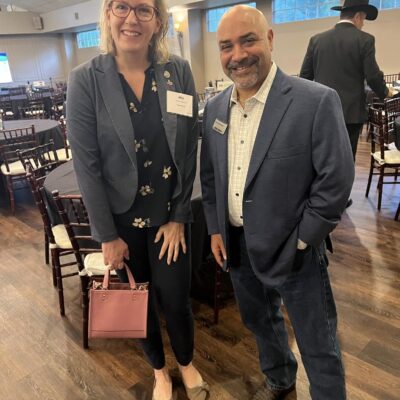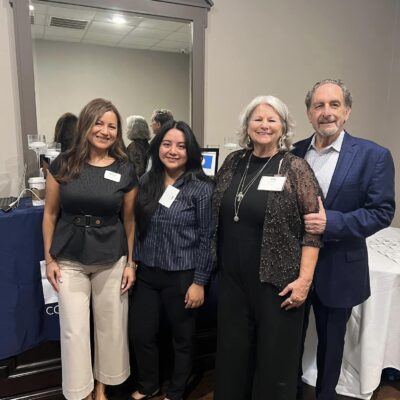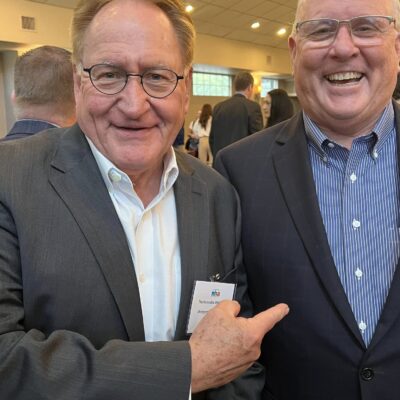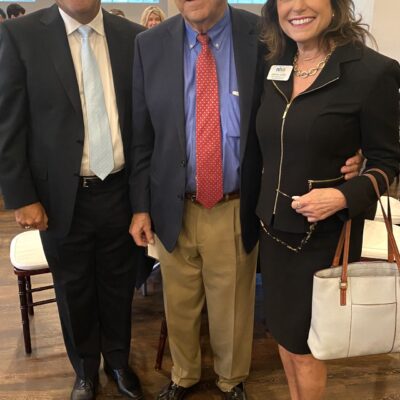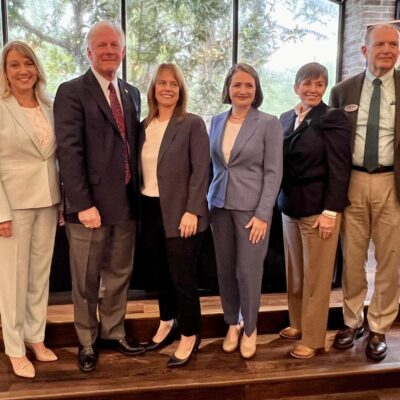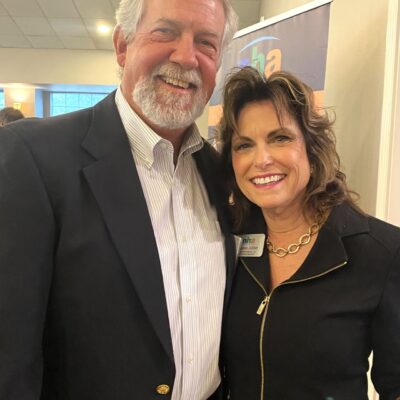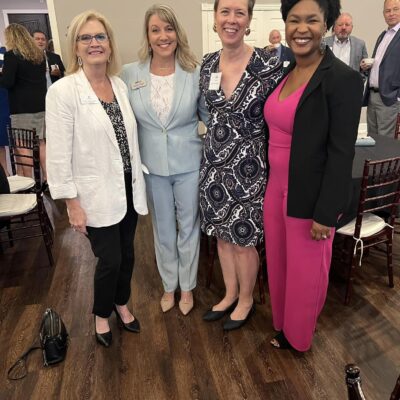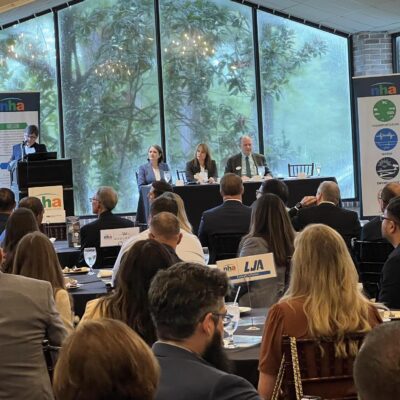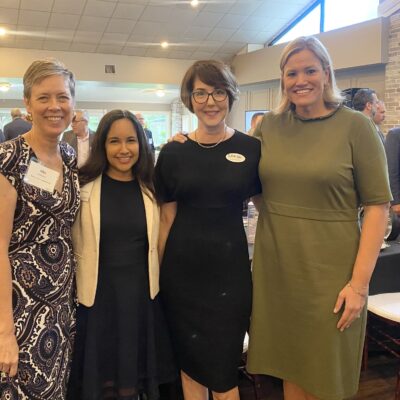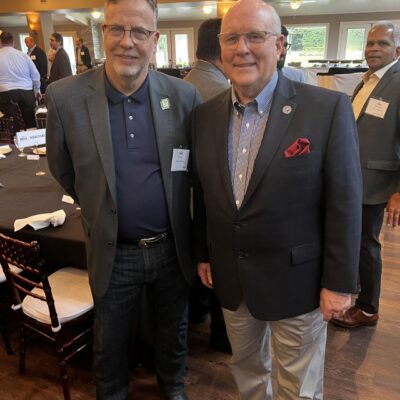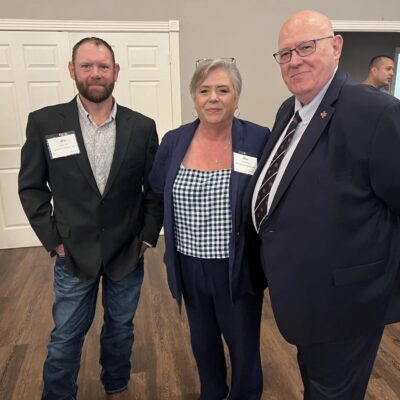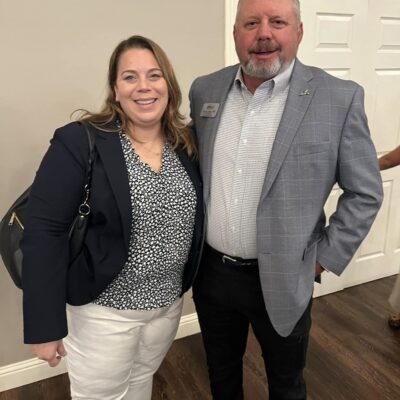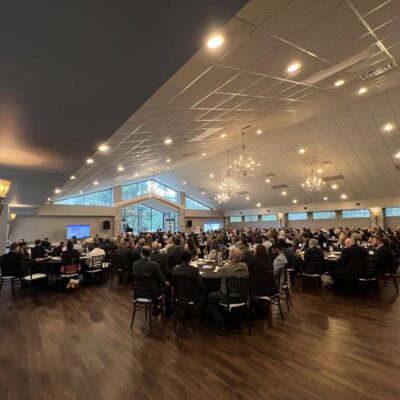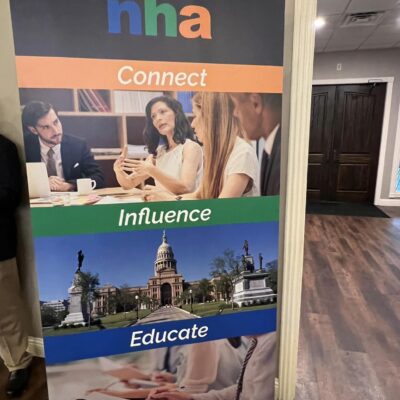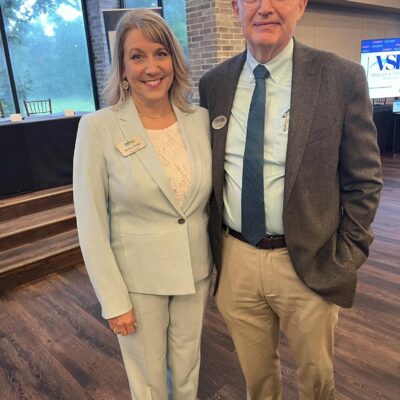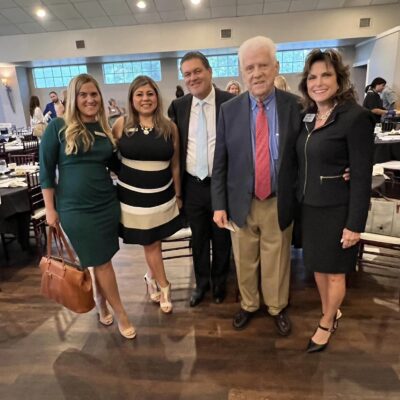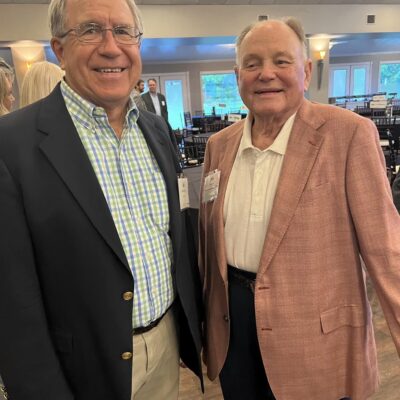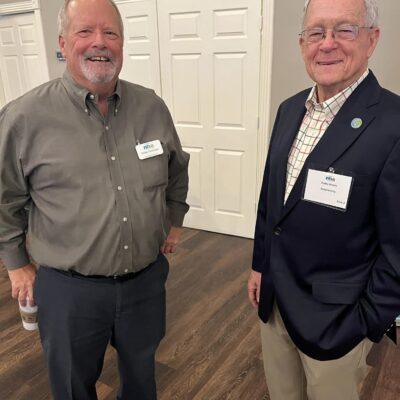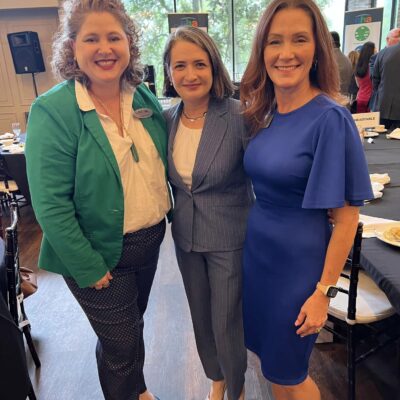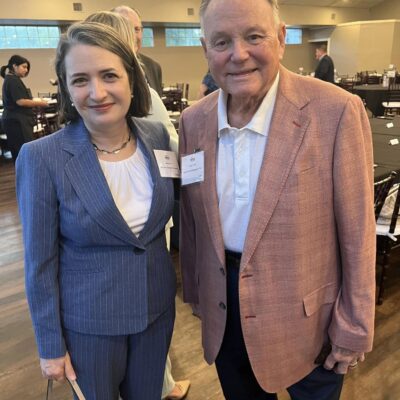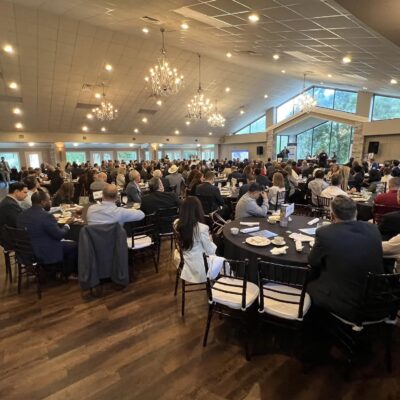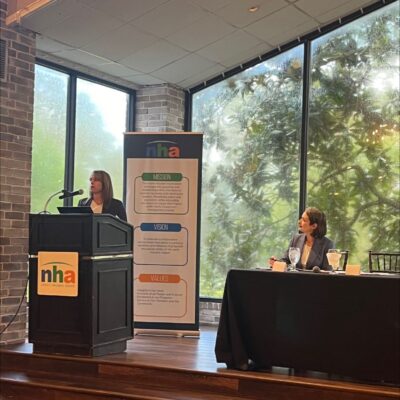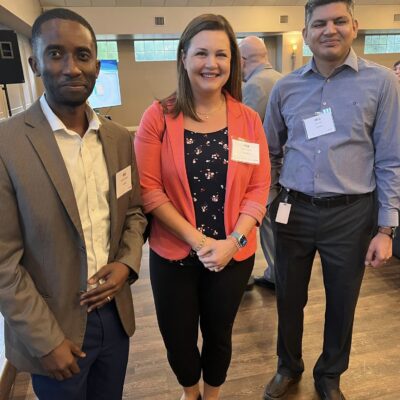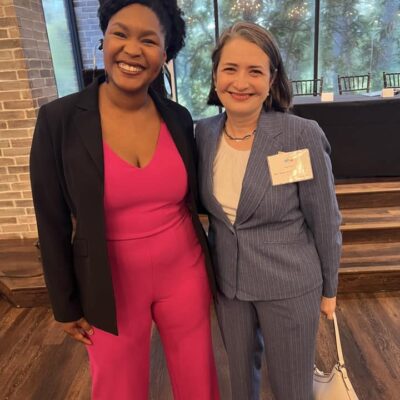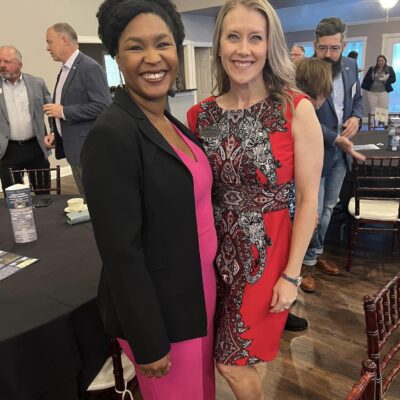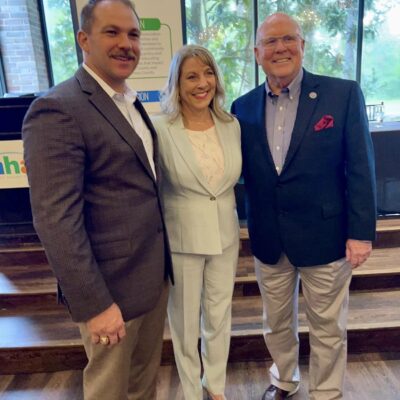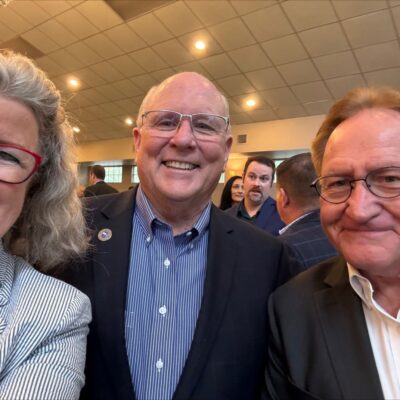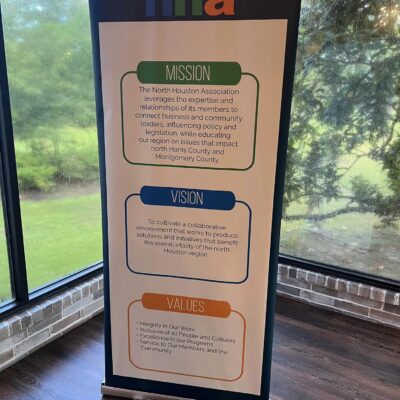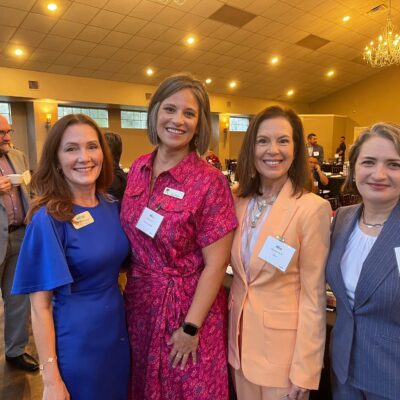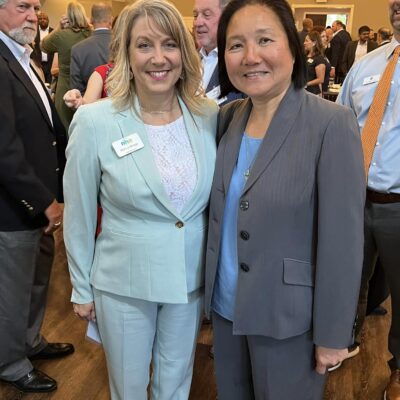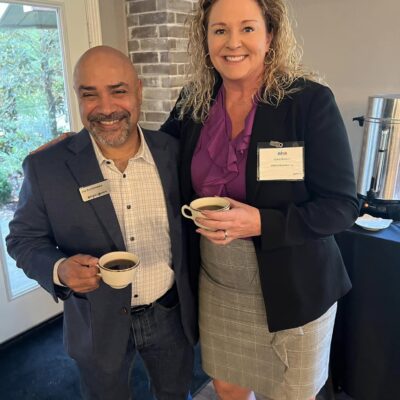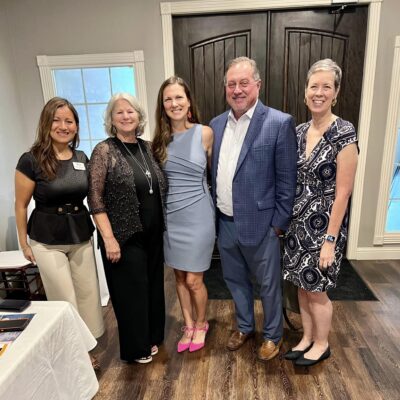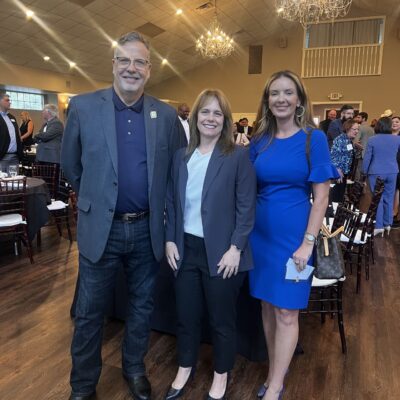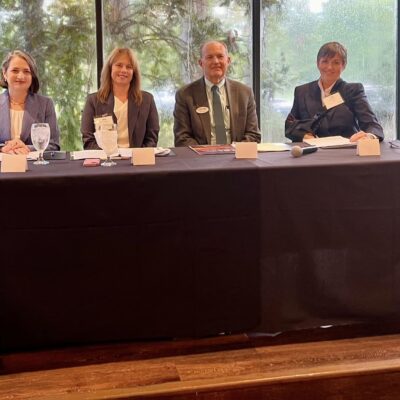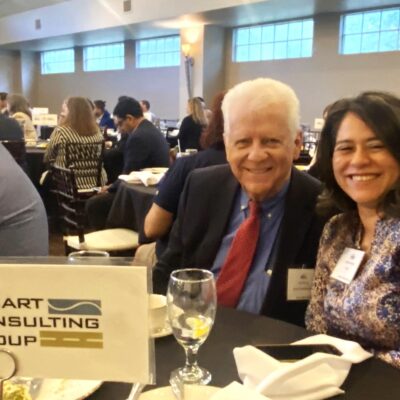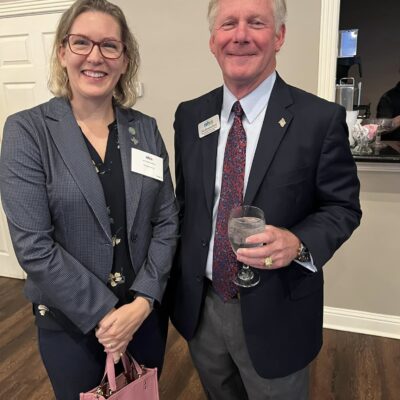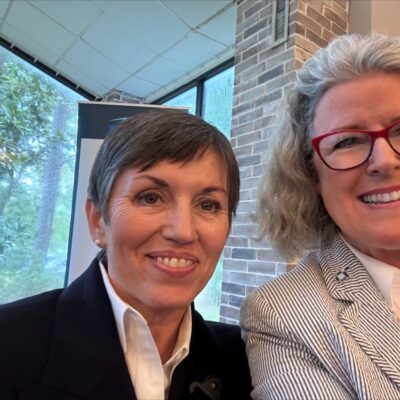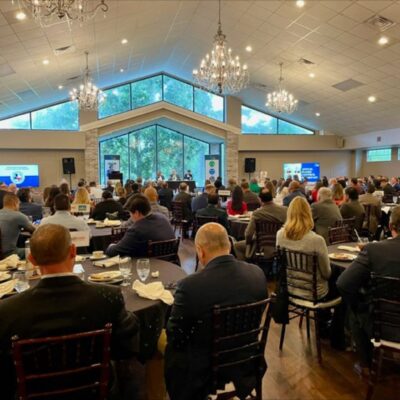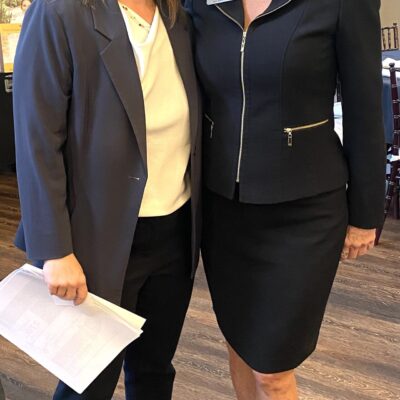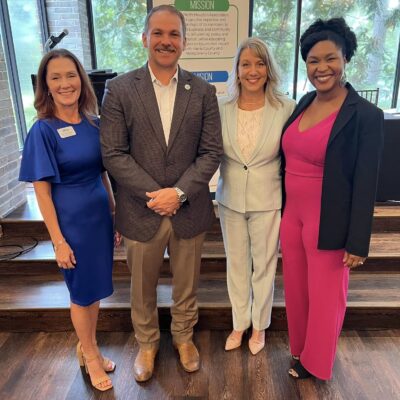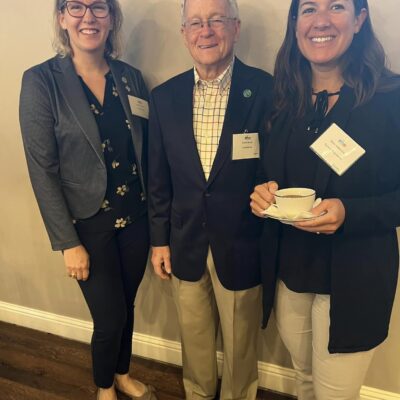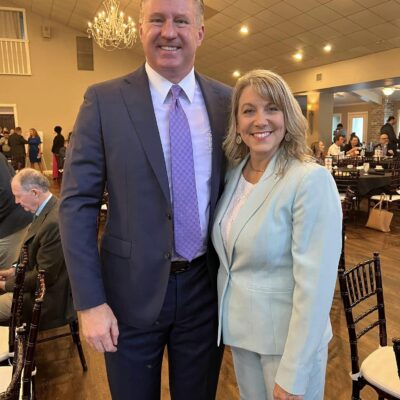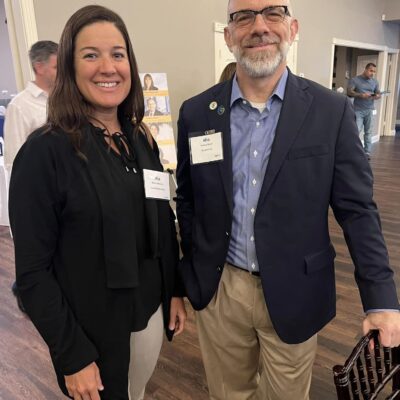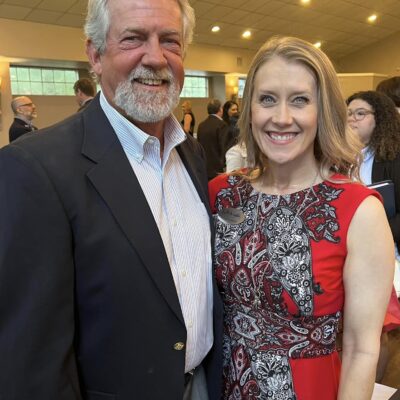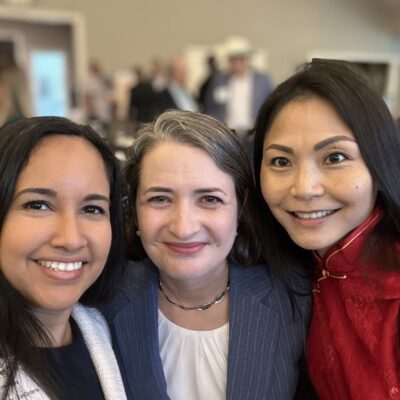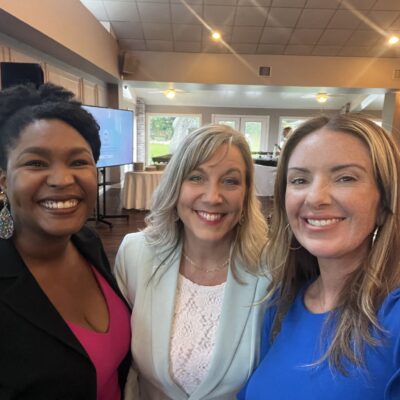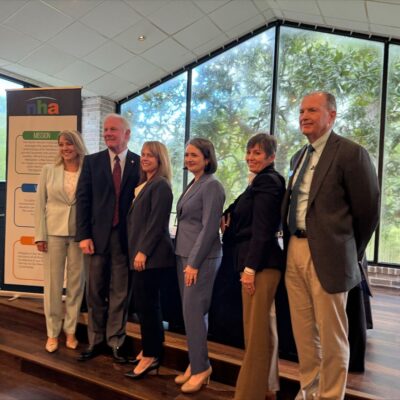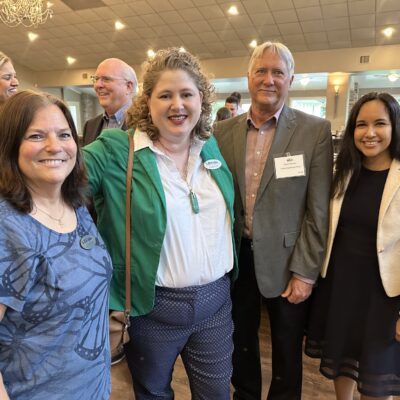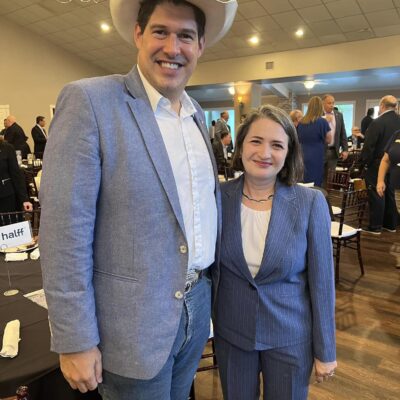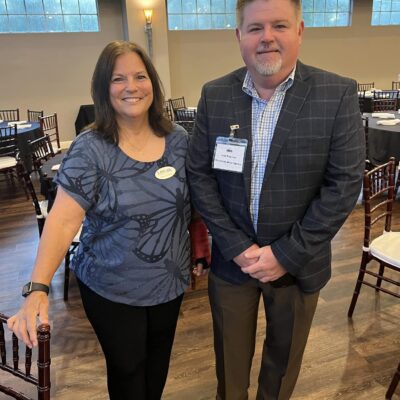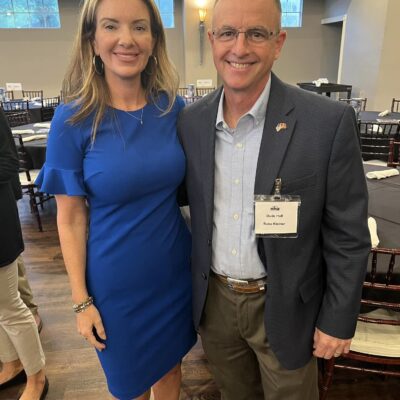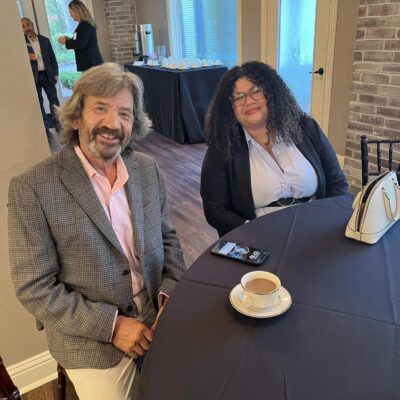The North Houston Association held the Annual Flood Control Breakfast on August 28th, 2024, gathering with over 250 members, electeds and public officals in the room. They all came to hear from the panel of experts including Harris County Flood Control District (HCFCD)’s, Executive Director, Tina Petersen, P.E., PhD, San Jacinto River Authority (SJRA)’s General Manager, Aubrey Spear, Texas Division of Emergency Managment (TDEM) Section Chief, Michelle Ellis, and Moderator, Vice Chair of San Jacinto Regional Flood Planning Group, Alia Vinson.
The morning began with each panelist giving a quick overview of their current projects, programs and initiatives highlighting the unique challenges and opportunities our region provides when addressing flooding issues in each of their roles.
Following their short presentations, our moderator kicked off the Q&A portion of the breakfast by asking Dr. Petersen to discuss her experiences during the creation of the newly adopted Texas State Flood Plan. Harris County is the sponsoring entity for the San Jacinto Region 6 Flood Planning Group (SJRFPG) and helped the group manage “5 years of work in about 2.5 years,” according to our moderator and SJRFPG Vice Chair, Alia Vinson. The comprehesive State Flood Plan assessment is a combination of the 15 watershed specific flood plans with region based suggestions and solutions to address flooding. Currently, projects cannot access money from the Flood Instrastructue Fund unless they’re listed in state flood plan. Dr. Petersen took a moment of her response to thank each audience member who participated in the creation of the plan stating, “This was a monumental effort and is a great first step that will help our state know how to better prepare for and prevent flooding disasters in the future.”
Dr. Petersen also shared that this November the Flood Control District will be going to the voters with a proposed tax increase to bring our 270 year maintenance cycle closer to a 67 year cycle. “[There is currently] not enough money to address our unprecedented need for disaster mitigation,” began Dr. Petersen “Maintenance funding is flat while the property the district is responsible for has doubled.” A 1.7 cent increase is what the District is asking voters to approve, which will provide nearly 113 million in additional revenue for maintenance of the counties aging infrastructure.
Our next question was directed at Michelle Ellis, who through her role as TDEM Section Chief of Region 4, is responsible for a 13-county area, including Montgomery, Harris, Waller, Liberty and Walker counties. Michelle shared that since 1953, Texas has had more than 375 major disaster delcrations. That is about one every 8.2 months. “Incidents begin and end locally and are managed daily at the closest possible geographical, organizational, and jurisdictional level,” she shared. “[We] aim to ensure every single Texan is no more than 1 county away from a TDEM employee at all times.”
When asked how we all could better work with TDEM a the local level, Michelle said, “[Our ask of you all is to] develop bigger more multi-jurisdictional projects that can be broken down to bite size pieces. We want to be a part of your partnerships, please allow us to help you build back, and build better.”
Our final panelist was asked to address the differences he has experienced since leaving his role as Director of Water Utilities for the City of Lubbock. In his first nine months at SJRA, Aubrey encountered a freeze, several flooding events, a Derecho and Hurricane Beryl. “Each of these ‘disasters’ came with its own unique set of problems and with those problems new opportunities for solutions,” said Spear. The public often looks to SJRA for answers when our region faces water issues, and many times the agency has had to adapt to a once in a lifetime event as it’s still playing out. “A lot of education is needed so that people understand there are multiple watersheds and that there are certain things SJRA can and cannot do in each. We cannot regulate property development or require detention facilities to be built, but what we can do is facilitate a cooperation of efforts to reach out and connect everyone together to find solutions,’ said Spear. “I wholeheartedly support what Commissioner Ramsey has said which is that we all need to get together and find a project that connects and helps all of us.”



